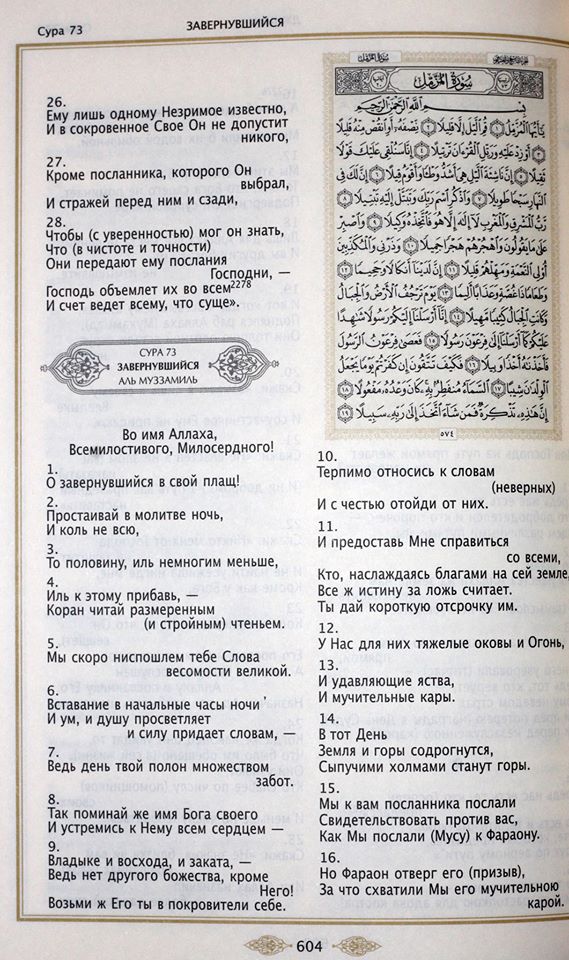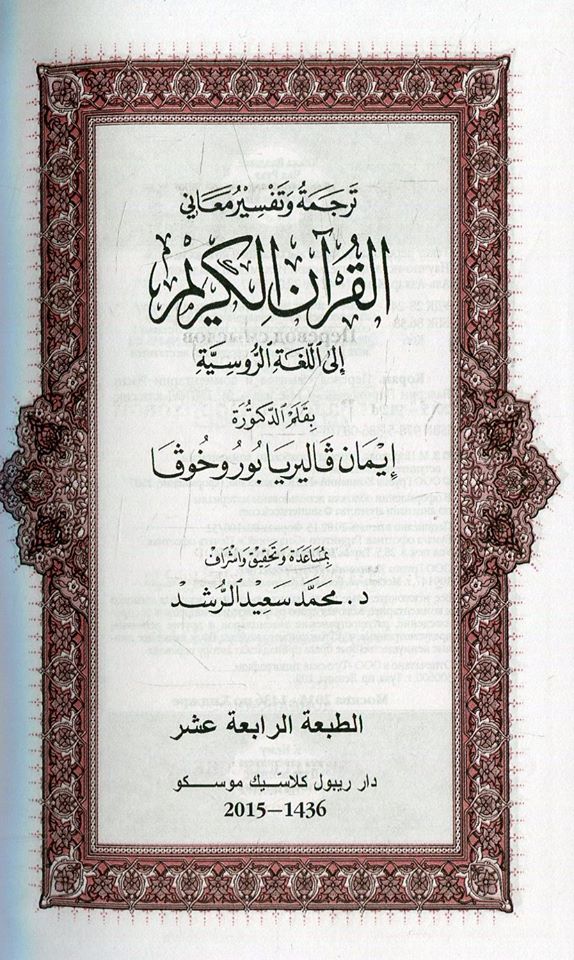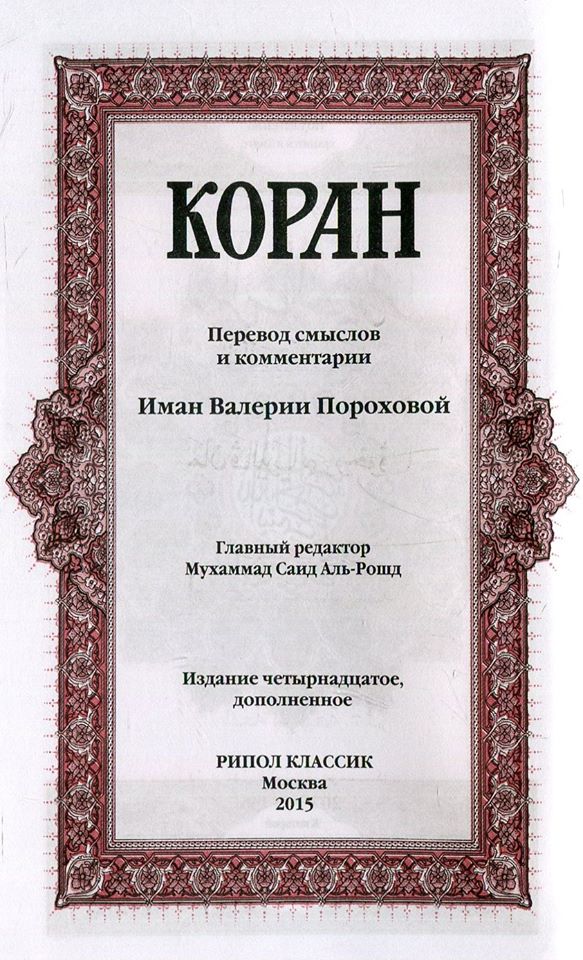“Koran: perevod smyslov” (1993) was the first Russian translation by a Muslim woman. By the late 1980’s, the Muslim community in the Soviet bloc experienced significant changes related to the return of religious freedom and the subsequent growth of religious revivalism. Only the academic work of Ignatij Krachkovskij (1963) and the outdated Christian Orthodox missionary one by Gordij Sablukov (1873) were widely available as representations of Islam’s core text (reprinted in 1990-1991).
The first Muslim translator, Valerija Porokhova (1940–2019) graduated from Moscow State Pedagogical Institute of Foreign Languages with a diploma in simultaneous interpretation from English. In the mid-1980’s, Porokhova visited Damascus and converted to Islam (she also adopted a new name, Iman). From 1991, Porokhova became engaged in Islamic activities in Russia along with her Syrian spouse Muhammad al-Rushd (usually mentioned as the first editor of the work).
Porokhova’s translation is characterized by two outstanding features. The first point is that her work was the first Russian translation of the Qur’an written in a rhymed poetical style. The second is that she was the first Muslim translator of the Qur’an into the Russian language, claiming her work as the religious interpretation of the text. In her introduction to the first edition, Porokhova reveals that her translation is based on Islamic exegeses (tafsirs by al-Tabari, al-Qurtubi, Ibn Kathir and Sayyid Qutb). Special attention is given to the English translation and comments by Abdullah Yusuf Ali. As a poetic translation, the work is produced in a free literary style with the usage of some archaic expressions.
The first edition of Porokhova’s translation appeared in 1993. More than 20 further editions (also printed in UAE and Iran, together with Arabic text) were outstandingly popular among Russian-speaking readers. In the 90’s, the translation was approved by some Islamic organizations in Russia and former Soviet countries; nevertheless, many critical remarks were also posed concerning “liberties” in both the translation and commentary. After a few years, the translation by Porokhova lost the top rank in terms of popularity (first of all, due to the appearance of new works). Still, it remains the only translation into the Russian language by a Muslim convert among ethnic Russians, and the first by a female translator (the second, by Betsi Shidfar, appeared posthumously in 2003).
Mykhaylo Yakubovych



